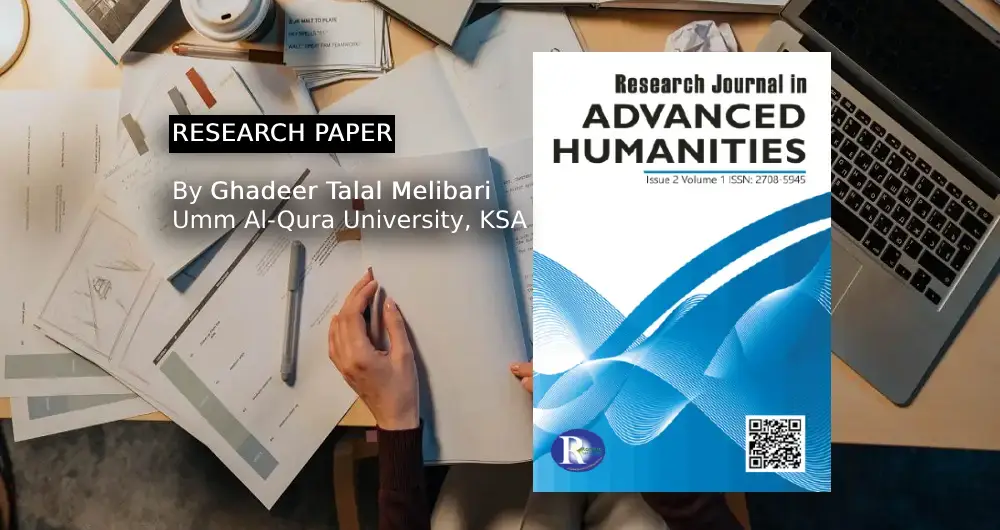Ghadeer Talal Melibari
Umm Al-Qura University, Kingdom of Saudi Arabia
Abstract
The globalizing job market has heightened the importance of English proficiency for university graduates, positioning English as a pivotal factor in their readiness for professional careers. Therefore, the objectives of this study were to know the extent of the impact of studying in universities in the English language on the development of knowledge, cognitive, communication, personality and work skills of university graduates from their perspective. The results were as follows: More than three quarters of the sample (81.53) agreed and strongly agreed that studying in English for university graduates has an impact on developing knowledge skills. While a very small percentage of the sample (7.85) were disagreed and strongly disagree. Nearly three quarters of the sample (67.98) agreed and strongly agreed that studying in English for university graduates has an effect on developing cognitive skills. While a very small percentage of the sample not exceeding one sixth (16.01) were disagree and strongly disagree. Nearly three quarters of the sample (74.74) agreed and strongly agreed that studying in English for university graduates has an impact on developing communication skills. While a very small percentage of the sample (9.52) were disagreed and strongly disagree. Nearly three quarters of the sample (71.26) were in agreement and strongly agreed that studying in English for university graduates has an impact on developing personal skills. While a very small percentage of the sample (11.66), were in disagree and strongly disagree. Nearly three quarters of the sample (71.29) were in agreement and strongly agreed that studying in English for university graduates has an impact on developing work skills. While a very small percentage of the sample (8.63) were in disagree and strongly disagree, and 20.07 of the sample were neutral. The total average of skills was (73.35%) were in agreement and strongly agreed that studying in English for university graduates has an impact on developing total skills. While a very small percentage of the sample (10.74%) were in disagree and strongly disagree.
Published By Research Journal in Advanced Humanities



